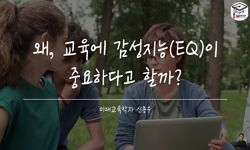Mobile is deeply located in our daily lives, and the spread of mobile messengers has led to many changes in communication. Recently, we can often see people exchanging emoticons on mobile messenger applications. The use and the interest in the graphic...
http://chineseinput.net/에서 pinyin(병음)방식으로 중국어를 변환할 수 있습니다.
변환된 중국어를 복사하여 사용하시면 됩니다.
- 中文 을 입력하시려면 zhongwen을 입력하시고 space를누르시면됩니다.
- 北京 을 입력하시려면 beijing을 입력하시고 space를 누르시면 됩니다.

감성지능에 따른 모바일 이모티콘 사용동기가 태도에 미치는 영향 - 자기노출의 조절효과를 중심으로 - = Effect of Emotional Intelligence and Motivation of Mobile Messenger Emoticons on Attitude - Focused on the Moderating Effects of the Self Disclosure -
한글로보기https://www.riss.kr/link?id=A108284776
-
저자
최우영 (동아대학교)

- 발행기관
- 학술지명
- 권호사항
-
발행연도
2022
-
작성언어
Korean
-
주제어
감성지능 ; 사용동기 ; 자기노출 ; 태도 ; Emotional Intelligence ; Use Motives ; Self-disclosure ; Attitude
-
등재정보
KCI등재
-
자료형태
학술저널
-
수록면
19-38(20쪽)
- DOI식별코드
- 제공처
-
0
상세조회 -
0
다운로드
부가정보
다국어 초록 (Multilingual Abstract)
Mobile is deeply located in our daily lives, and the spread of mobile messengers has led to many changes in communication. Recently, we can often see people exchanging emoticons on mobile messenger applications. The use and the interest in the graphic icons are on the rise as they are considered a convenient way to convey a writer’s feelings or moods, which are often difficult or uncomfortable to be expressed in words, and also a means of icebreaker or being nice in chit chats that you don’t care that much. Being so accustomed to building a relationship on digital devices thesedays, people often find it difficult to socialize in the real world, and in some cases, they hide their real feelings using emoticons. In the end, emoticons can be viewed as a medium to express one’s feelings and emotions. This study tried to examine the relationship among consumer emotional intelligence, motives to use emoticons, and users’ attitude based on the presumption that consumer emotional intelligence will have a positive effect on the user attitude by inducing the motives to use emoticons.
As a result, the study concluded that consumer emotional intelligence has a positive effect on the motives, which also positively influence the attitude toward emoticon use. However, it was found that the emotional regulation of emotional intelligence doesn’t have an influence on perceived usefulness and enjoyment. In addition, it was found that its influence on use motives and attitude differs according to the degree of self-disclosure. In conclusion, this study is meaningful in that it verified the relationship between the use motives and attitude of people who use graphic emoticons on messengers through consumer emotional intelligence. Through this, it is believed that it will be possible to develop, design, and recommend various emoticon systems based on consumer sentiment, which is expected to provide the basis for preparing a plan for a company's marketing strategy.
국문 초록 (Abstract)
모바일은 우리의 일상 속에 깊숙이 자리 잡고 있으며 모바일 메신저의 확산은 커뮤니케이션에 많은 변화 를 초래 하였다. 최근 우리 주변에서 모바일 메신저 어플리케이션으로 이모티콘(Emot...
모바일은 우리의 일상 속에 깊숙이 자리 잡고 있으며 모바일 메신저의 확산은 커뮤니케이션에 많은 변화 를 초래 하였다. 최근 우리 주변에서 모바일 메신저 어플리케이션으로 이모티콘(Emoticon)을 주고 받는 현 상을 자주 볼 수 있다. 이는 말로 전달하기 어렵고 복잡한 감정을 쉽게 전할 수 있으며, 어색한 분위기를 환 기시키는 역할과 무성의함도 감출 수 있어 사용과 관심이 늘고 있다. 특히 요즘 사람들은 디지털 기기에 익 숙하다 보니 다른 사람들과 관계 맺기도 힘들고 표현이 서툴러 본인의 감정을 이모티콘 뒤에 숨기기도 한 다. 결국, 이모티콘은 자신의 감정을 대신 표현해주는 콘텐츠로 자리 잡아 감정이 매개체가 된 것이라 볼 수 있다. 따라서 본 연구에서는 소비자 감성지능이 사용동기를 유발시켜 태도에 긍정적인 영향을 미칠것으로 예상하고 영향관계를 살펴보고자 하였다. 그 결과 소비자 감성지능은 사용동기에 긍정적인 영향을 미쳤으며, 사용동기는 최종적으로 태도에 긍정적인 영향을 미치는 것으로 나타났으나 감성지능 중 감정조절은 사용동 기인 지각된 유용성과 지각된 즐거움에는 영향을 미치는 않았다. 또한 사용동기와 태도에 미치는 영향은 자 기노출 정도에 따라 차이가 있는 것으로 나타났다. 결론적으로 본 연구를 통해 메신저 내 그래픽 이모티콘 을 사용하는 사용자를 대상으로 사용태도와 사용동기와의 관계를 소비자 감성지능을 통해 검증했다는 점에 의의가 있다. 이를 통해 소비자 감정에 기반한 다양한 이모티콘 시스템의 개발 및 설계, 추천이 가능하리라 판단되며 이는 기업의 마케팅 전략의 방안 마련의 토대를 제공할 수 있을 것으로 기대된다.
1 김재현 ; 이형룡, "확장된 통합기술수용이론(UTAUT2)을 기반으로 프랜차이즈 분식점 키오스크 서비스에 대한 소비자 수용 : 수줍음의 조절효과를 중심으로" 한국호텔외식관광경영학회 29 (29): 99-118, 2020
2 박상도 ; 성봉석, "혁신 기술의 사회적 수용에 대한 영향요인의 탐색 - 스마트 모빌리티(Smart Mobility)를 중심으로 -" 대한경영정보학회 36 (36): 239-260, 2017
3 조수연 ; 이은선, "페이스북에서 브랜드 자기노출과 친밀감에 따른 커뮤니케이션 효과 차이 연구: 사회침투이론을 중심으로" 한국광고학회 26 (26): 95-117, 2015
4 김상희, "판매원의 감정부조화와 심리적·행동적 반응의 관계: 감정지능과 사회적 지원의 조절효과를 중심으로" 한국경영학회 37 (37): 989-1038, 2008
5 이혜은 ; 이순희, "코로나(COVID-19)로 인한 대인관계 변화와 대처경험에 대한 대학생의 인식" 학습자중심교과교육학회 21 (21): 405-417, 2021
6 정윤교, "카카오톡 이모티콘 9주년 10억넘게 번 이모티콘 73개"
7 강선경 ; 권진, "청소년의 자기통제력과 게임과몰입에 대한 연구: 게임효능감의 조절효과 검증" 한국청소년복지학회 23 (23): 113-134, 2021
8 김승연, "이모티콘(Emoticon)의 표현 양상에 관한 연구" 한국어의미학회 38 : 1-25, 2012
9 정보희 ; 김한구, "이모티콘 사용동기, 플로우, 사회적 영향력이 이모티콘 사용태도 및 구매의도에 미치는 영향" 대한경영정보학회 35 (35): 27-44, 2016
10 정지연 ; 노태우, "웨어러블 디바이스 사용의도에 관한 실증 연구: 수정된 기술수용모델을 중심으로" 한국디지털정책학회 15 (15): 205-212, 2017
1 김재현 ; 이형룡, "확장된 통합기술수용이론(UTAUT2)을 기반으로 프랜차이즈 분식점 키오스크 서비스에 대한 소비자 수용 : 수줍음의 조절효과를 중심으로" 한국호텔외식관광경영학회 29 (29): 99-118, 2020
2 박상도 ; 성봉석, "혁신 기술의 사회적 수용에 대한 영향요인의 탐색 - 스마트 모빌리티(Smart Mobility)를 중심으로 -" 대한경영정보학회 36 (36): 239-260, 2017
3 조수연 ; 이은선, "페이스북에서 브랜드 자기노출과 친밀감에 따른 커뮤니케이션 효과 차이 연구: 사회침투이론을 중심으로" 한국광고학회 26 (26): 95-117, 2015
4 김상희, "판매원의 감정부조화와 심리적·행동적 반응의 관계: 감정지능과 사회적 지원의 조절효과를 중심으로" 한국경영학회 37 (37): 989-1038, 2008
5 이혜은 ; 이순희, "코로나(COVID-19)로 인한 대인관계 변화와 대처경험에 대한 대학생의 인식" 학습자중심교과교육학회 21 (21): 405-417, 2021
6 정윤교, "카카오톡 이모티콘 9주년 10억넘게 번 이모티콘 73개"
7 강선경 ; 권진, "청소년의 자기통제력과 게임과몰입에 대한 연구: 게임효능감의 조절효과 검증" 한국청소년복지학회 23 (23): 113-134, 2021
8 김승연, "이모티콘(Emoticon)의 표현 양상에 관한 연구" 한국어의미학회 38 : 1-25, 2012
9 정보희 ; 김한구, "이모티콘 사용동기, 플로우, 사회적 영향력이 이모티콘 사용태도 및 구매의도에 미치는 영향" 대한경영정보학회 35 (35): 27-44, 2016
10 정지연 ; 노태우, "웨어러블 디바이스 사용의도에 관한 실증 연구: 수정된 기술수용모델을 중심으로" 한국디지털정책학회 15 (15): 205-212, 2017
11 윤해진, "온라인 서포트 커뮤니티에서의 인지된 익명성: 계층적 개념구조와 공적인 자기노출에 미치는 영향" 한국언론학회 50 (50): 305-332, 2006
12 남은우 ; 이태균 ; 서영욱, "업무용 SNS 스트레스가 사용자저항을 통해 SNS 자기노출에 미치는 영향" 사회혁신기업연구원 6 (6): 33-52, 2021
13 유은제, "스토리텔링 이모티콘 유형의수용자 태도 및 구매 의도에 관한 연구 : 독특성 욕구를 중심으로" 20 (20): 259-274, 2019
14 김건우 ; 박도형, "사고가 시각을 바꾼다: 조절 초점에 따른 소비자 감성기반 웹 스타일 평가 모형 및 추천 알고리즘 개발" 한국지능정보시스템학회 24 (24): 171-196, 2018
15 구본희, "미술 감상 교육 개선안 : 중학교 교과서 감상단원 중심으로" 성신여자대학교 교육대학원 2006
16 한영주 ; 하주용, "미디어 이용 동기, 개인적 성향, 인지된 개혁의 특성이 1인 방송 시청에 미치는 영향: ‘이용과 충족’ 이론과 ‘개혁의 확산’ 이론을 중심으로" 한국방송학회 (107) : 152-190, 2019
17 이재신 ; 연보영, "미니홈피에서 나타나는 대학생들의 자기노출 및 이에 영향을 주는 요인들에 관한 연구" 한국언론학회 52 (52): 98-121, 2008
18 황하성 ; 박성복, "문자메시지의 이모티콘 활용에 대한 관한 연구: 이용동기와 사회적 현존감의 상관성을 중심으로" 한국여성커뮤니케이션학회 (9) : 133-162, 2008
19 이이삭 ; 이상현 ; 정재선 ; 노기영, "모바일 헬스케어 앱의 지속사용의도에 미치는 심리적 요인의 영향 연구" 한국디지털정책학회 15 (15): 445-456, 2017
20 김영채 ; 정승렬, "모바일 앱 이용에 영향을 미치는 요인 : - 플로우 이론과 통합기술수용모형을 바탕으로 -" 한국인터넷정보학회 14 (14): 73-84, 2013
21 김호, "모바일 메신저 이모티콘을 통한 커뮤니케이션에 관한 연구 -라인을 중심으로-" 한국콘텐츠학회 17 (17): 184-191, 2017
22 민경은 ; 김성준 ; 권두순, "모바일 메신저 보안인식과 보안의도를 통한 개인정보 보호행동에 미치는 영향 - 자기결정성 이론을 중심으로 -" 대한경영정보학회 35 (35): 207-233, 2016
23 안원미, "메시지 해석에 이모티콘이 미치는 정서적 효과 - 휴대전화 문자 메시지 상황을 중심으로" 한국에이치씨아이학회 5 (5): 11-18, 2010
24 강우림, "만 인스타그램 이용자들의 이용형태와 자기표현 성향 및 삶의 만족도 간의관계" 건국대학교 대학원 2018
25 송주헌, "구성원들의 부정적 감정, 전염성이 높다" 한국과학기술정보연구원 8 (8): 26-31, 2012
26 박유식 ; 채희남, "감성지능이 소비자 혁신성에 미치는 영향 - 감각추구성향과 인지욕구를 중심으로 -" 한국기업경영학회 18 (18): 55-81, 2011
27 유혜은, "감성지능과 고객지향성이 영업성과에 미치는 영향: 텔레마케팅 보험설계사를 대상으로" 한양대학교 2020
28 Hsu, C., "Why Do People Play On-Line Games? An Extended TAM with Social Influences and Flow Experience" 41 (41): 853-868, 2004
29 Mayer, J. D., "What is Emotional intelligence" 1997
30 Davis, F. D., "User Acceptance of Computer Technology : a Comparison of Two Theoretical Models" 35 (35): 982-1003, 1989
31 Matute-Vallejo, J., "Understanding Online Business Simulation Games : The Role of Flow Experience, Perceived Enjoyment and Personal Innovativeness" 35 (35): 71-85, 2019
32 Bhattacherjee, A., "Understanding Information Systems Continuance : an Expectation Confirmation Model" 25 (25): 351-370, 2001
33 Kuo, Y., "Towards an Understanding of the Behavioral Intention to Use 3G Mobile Value-Added Services" 25 (25): 103-110, 2009
34 Lo, S., "The Nonverbal Communication Functions of Emotions in Computer Mediated Communication" 11 (11): 595-597, 2008
35 허명심 ; 차희원, "The Influence of Usage Behavior and Motivation of Taiwanese Instagram Brand Accounts on Flow and Brand Attitude : The Moderating Effect of Self-disclosure, A Cultural Characteristic of Taiwan" Korea Advertising Society 32 (32): 67-101, 2021
36 강민정, "The Factors Motivating Empathic Responses of Women in their 30s and 40s: Focusing on Kakao Story" The Korea Contents Association 16 (16): 125-136, 2016
37 신선화 ; 서미혜, "The Effects of Self-disclosure on Instagram on Subjective Well-being: Roles of Narcissism and Positive Feedback" Cybercommunication Academic Society 37 (37): 47-88, 2020
38 이성준, "The Effects of Personality Traits and Motivations on Utilization of Graphical Emoticon in Mobile Messenger: Focusing on KakaoTalk" The Korea Contents Association 15 (15): 129-140, 2015
39 이진명 ; 박서니 ; 나종연, "The Effects of Perceived Usefulness and Perceived Enjoyment on Smartwatch Adoption and the Moderating Role of Consumer Inertia" 한국소비문화학회 21 (21): 43-65, 2018
40 박대범 ; 구자원, "The Effects of Learning Transfer on Perceived Usefulness and Perceived Ease of Use in Enterprise e-Learning - Focused on Mediating Effects of Self-Efficacy and Work Environment -" 대한경영정보학회 37 (37): 1-25, 2018
41 Wong, C., "The Effect of Leader and Follower Emotional Intelligence on Performance and Attitude : An Exploratory Study" 13 (13): 243-274, 2002
42 Zhou, T., "The Effect of Flow Experience on Mobile SNS Users’ Loyalty" 110 (110): 930-946, 2010
43 Greene, K., "The Cambridge Handbook of Personal Relationships" 409-427, 2006
44 신용재 ; 다니야 무르타지나 ; 서우종, "SNS 피로가 사용중단 의도에 미치는 영향에 대한 자기공개 욕구의조절효과에 관한 연구" 국제e-비즈니스학회 18 (18): 105-123, 2017
45 Kwak, K. T., "SNS flow, SNS Self-Disclosure and Post Hoc Interpersonal Relations Change : Focused on Korean Facebook user" 31 (31): 294-304, 2014
46 임정원 ; 한진욱 ; 김동규, "Predicting the Intention to Use Mobile Healthcare Application: Applying Extended Technology Acceptance Model(TAM)" Korean Alliance for Health, Physical Education, Recreation, and Dance 60 (60): 159-174, 2021
47 Tomer, F. J., "Personal Capital and Emotional Intelligence : An Increasingly Important Intangible Source of Economic Growth" 29 (29): 453-470, 2003
48 Nakanishi, M., "Perceptions of SelfDisclosure in Initial Interaction" 13 (13): 167-190, 1986
49 Davis, F. D., "Perceived Usefulness, Perceived Ease of Use, and User Acceptance of Information Technology" 13 (13): 319-340, 1989
50 전범수, "Perceived Homophily by the Degree of Self Disclosure among SNS Users" The Korea Contents Association 12 (12): 170-178, 2012
51 Yukl, G., "Leadership in Organizations" Prentice Hall 2002
52 Gardner, H., "Frames of Mind: The Theory of Multiple Intelligences" Hachette Uk 2011
53 Davis, F. D., "Extrinsic and Intrinsic Motivation to Use Computers in the Workplace1" 22 (22): 1111-1132, 1992
54 Huang, A. H., "Exploring the Potential Effects of Emoticons" 45 (45): 466-473, 2008
55 Prati, L. M., "Emotional Intelligence, Leadership Effectiveness, and Team Outcomes" 11 (11): 21-40, 2003
56 Salovey, P., "Emotional Intelligence" 9 (9): 185-211, 1990
57 Goleman, D., "Emotional Intelligence" Bantam Books 1995
58 Park, N., "Effects of Self-disclosure on Relational Intimacy in Facebook" 27 (27): 1974-1983, 2011
59 이새봄 ; 판류 ; 이상철 ; 서영호, "Effects of Self-Presentation and Privacy Concern on an Individual's Self-Disclosure : An Empirical Study on Twitter" The Korean Operations and Management Science Society 29 (29): 1-20, 2012
60 정문열 ; 홍성수 ; 양경모, "Effects of Emoticon-based Messenger for Collaborative viewing of TV Programs" Korea Digital Design Council 7 (7): 303-312, 2007
61 Guerrero, L. K., "Close Encounters: Communicatio in Relationships" Sage 2014
62 Netemeyer, R. G., "An Investigation into the Antecedents of Organizational Citizenship Behaviors in a Personal Selling Context" 61 (61): 85-98, 1997
63 류민아, "A Study on the Intention to Use Al-based Mobile Sports through the Expanded Technology Acceptance Model" Korea Sport Society 20 (20): 203-213, 2022
64 임선경, "A Study on the Attitudes and Intent of the Inhabitants of Storytelling Emoticons -Focusing on the need for uniqueness-" The Society of Korea Illusart 22 (22): 98-106, 2019
65 Schepers, J., "A Meta-Anaysis of the Technology Acceptance Model : Inverstigating Subjective Norm and Moderation Effects" 44 (44): 90-103, 2007
동일학술지(권/호) 다른 논문
-
인플루언서를 활용한 온라인 광고의 메시지 프레이밍과 영상 길이에 따른 시청의도의 차이 - 광고 의도가 포함된 유튜브 영상을 중심으로 -
- 대한경영정보학회
- 이현진
- 2022
- KCI등재
-
네트워크 분석을 활용한 국내 정보화 분야 연구 동향 분석
- 대한경영정보학회
- 장성수
- 2022
- KCI등재
-
진정성과 서비스 가치가 고객신뢰, 고객만족과 고객시민행동에 미치는 영향
- 대한경영정보학회
- 양진호
- 2022
- KCI등재
-
서비스제공자의 그릿(Grit)이 감정고갈 고객지향성에 미치는 영향
- 대한경영정보학회
- 정호선
- 2022
- KCI등재




 KCI
KCI eArticle
eArticle







